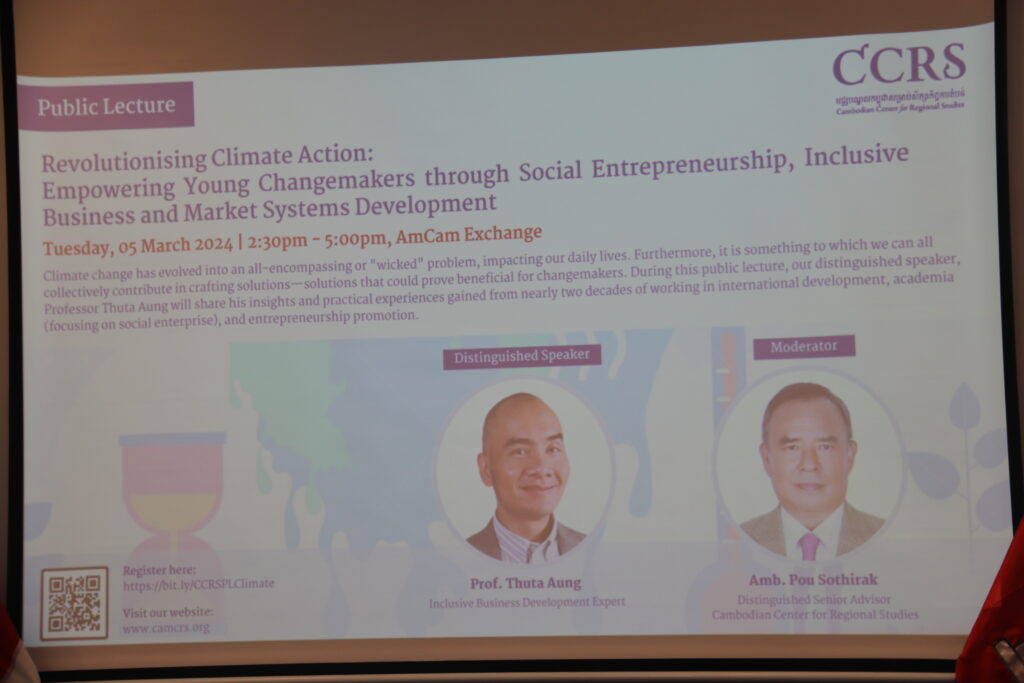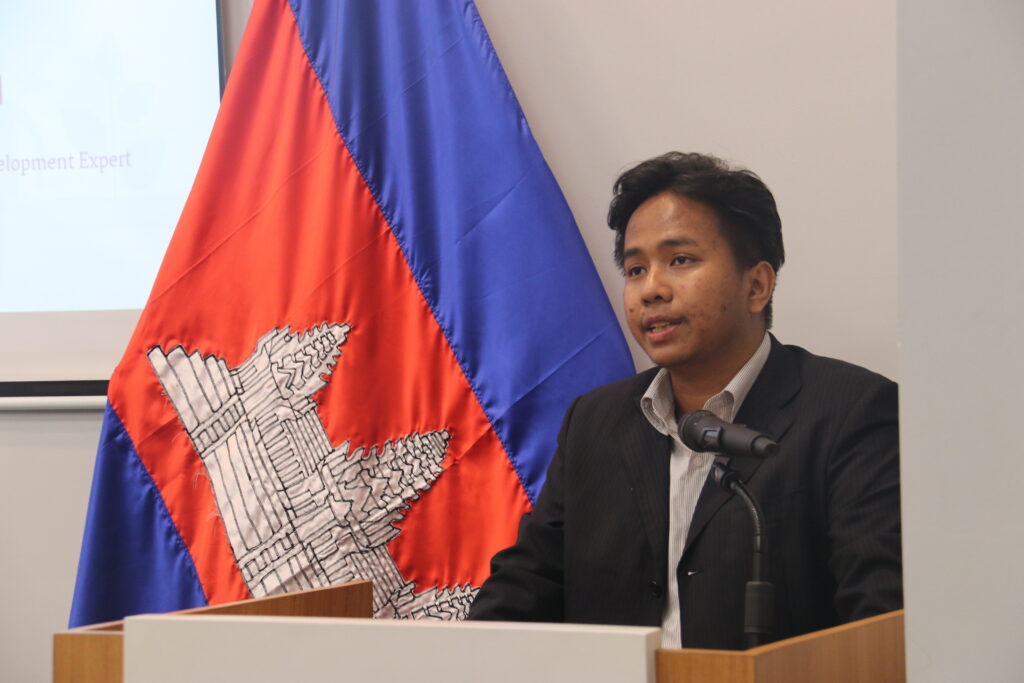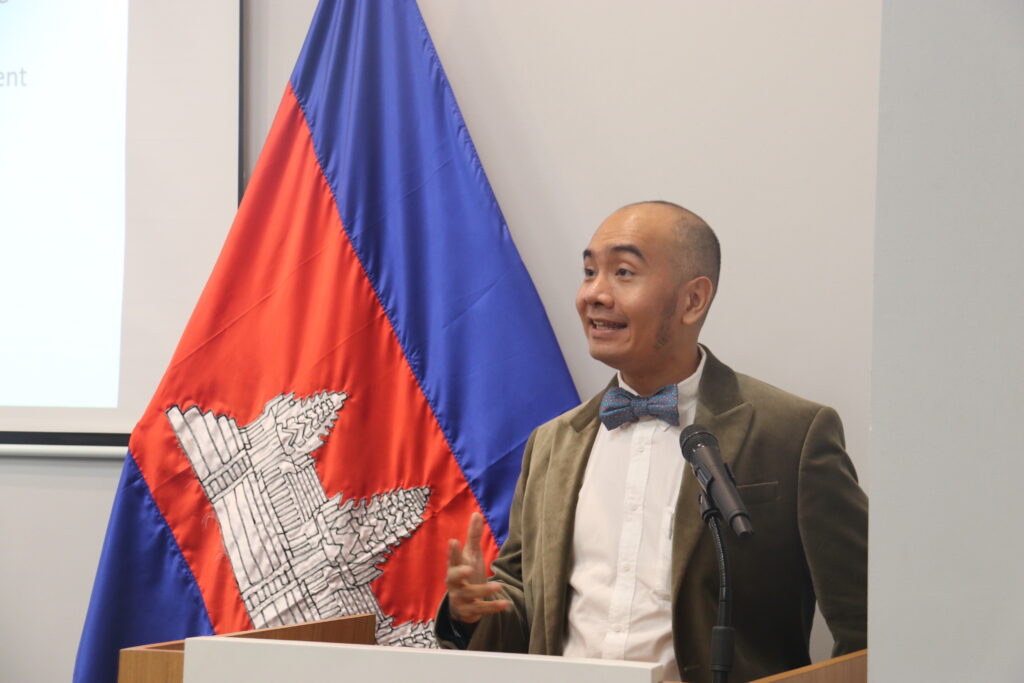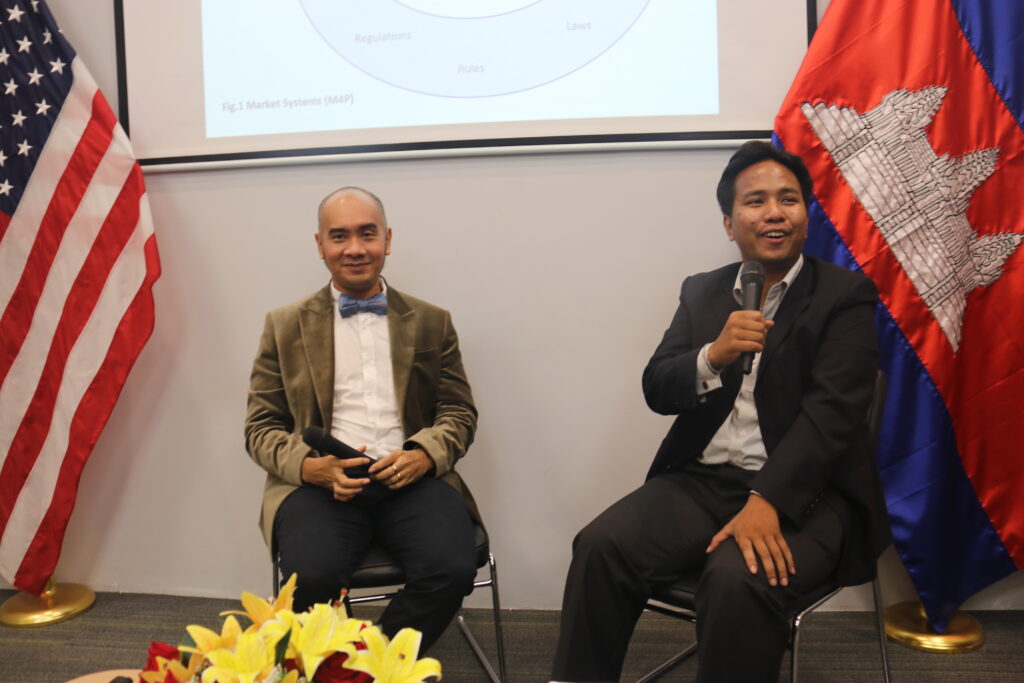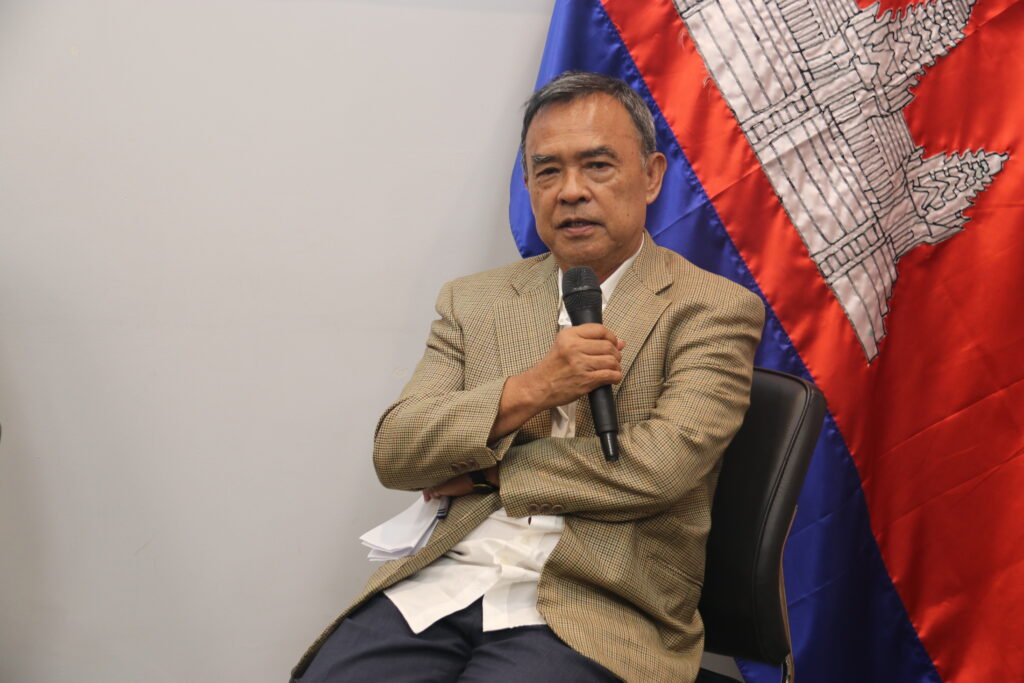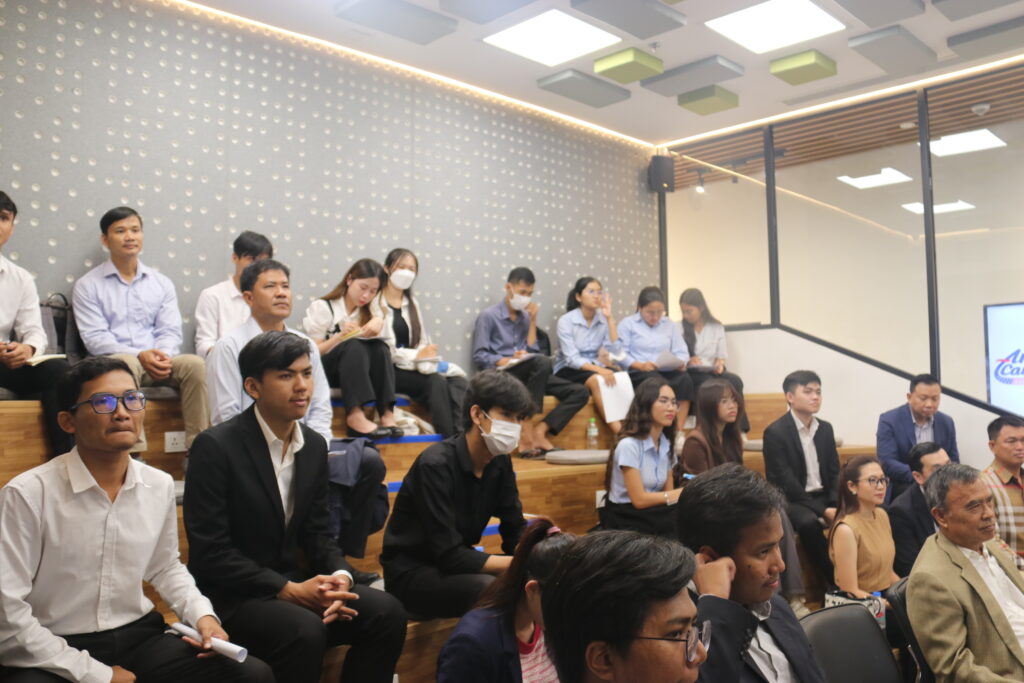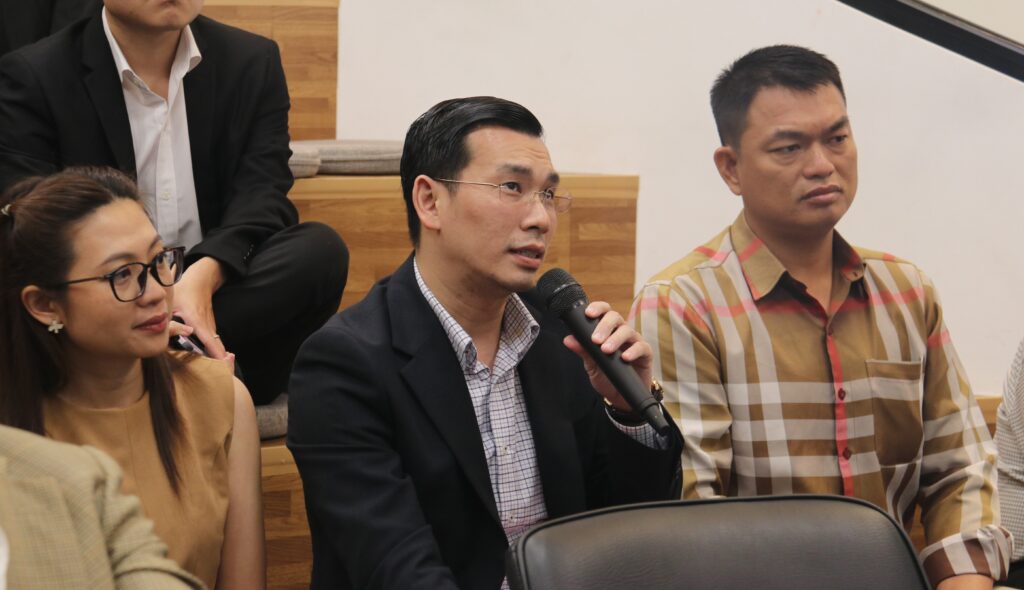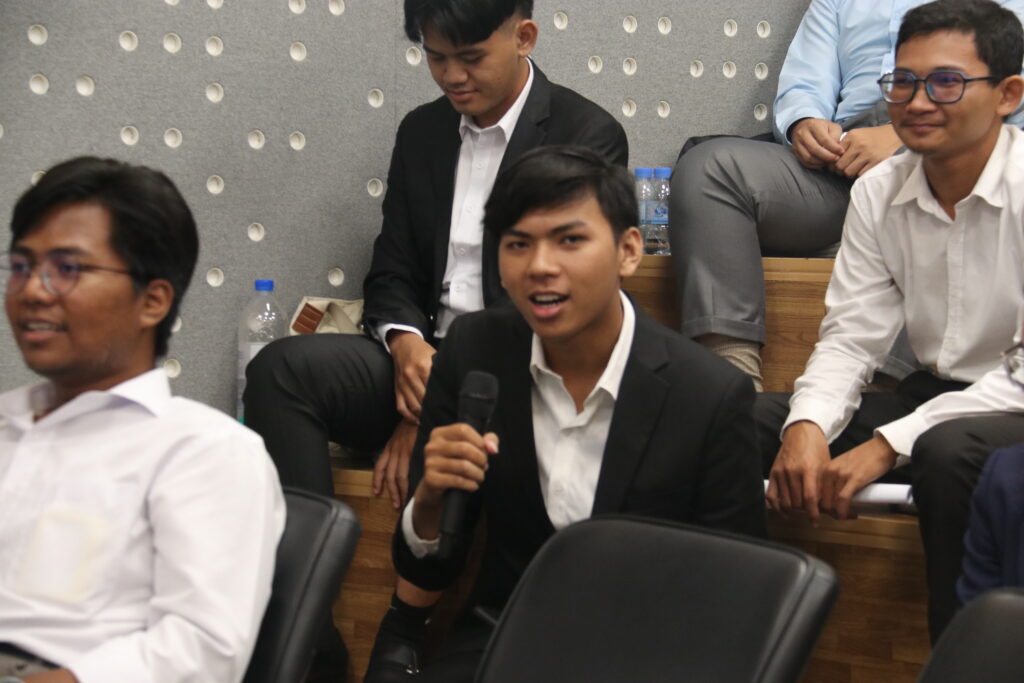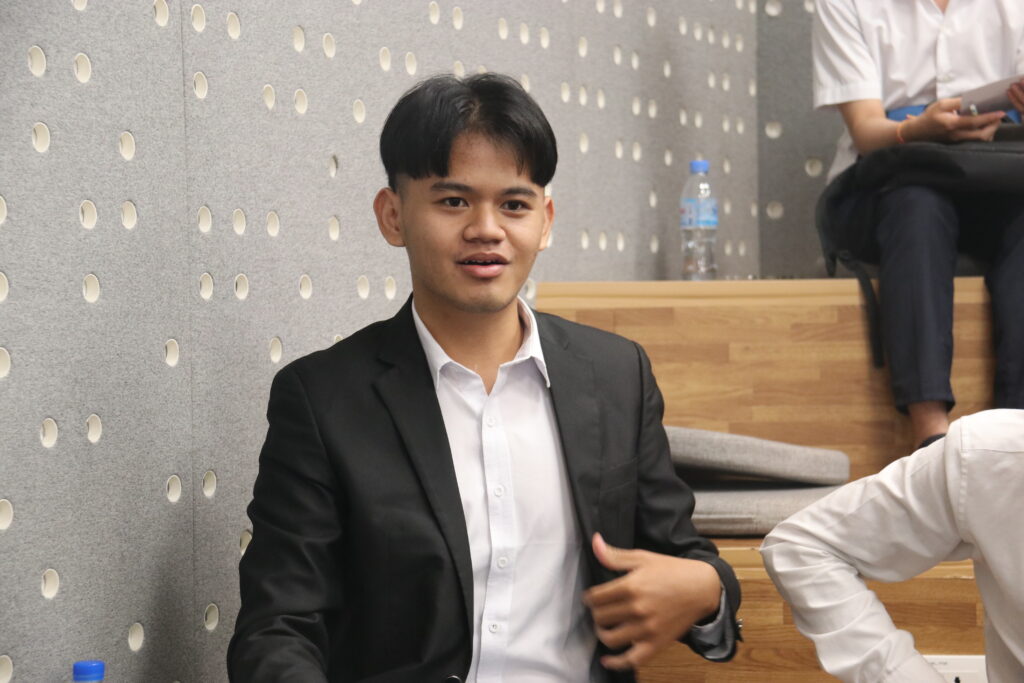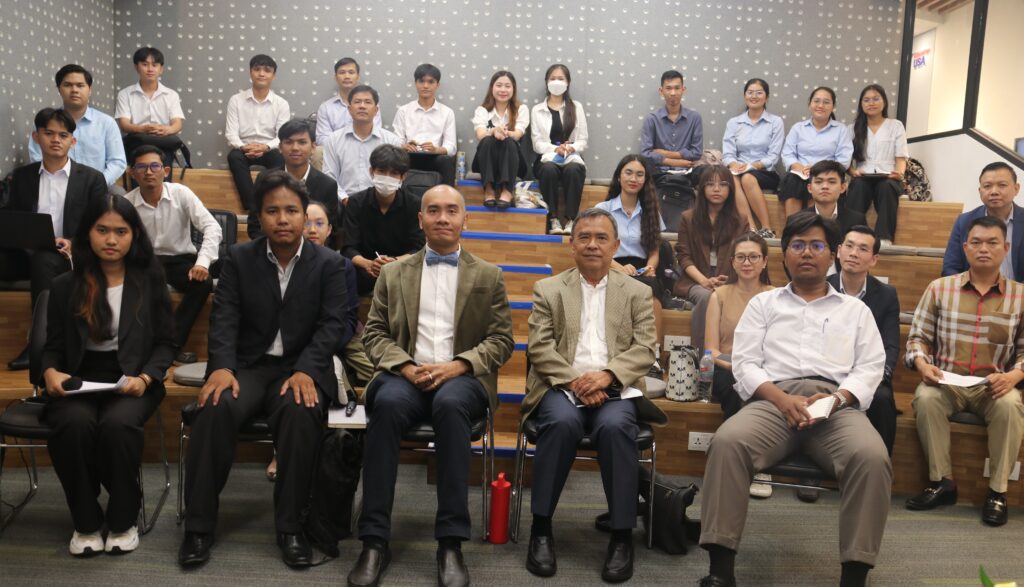CCRS organized a public lecture on “Revolutionising Climate Action: Empowering Young Changemakers through Social Entrepreneurship, Inclusive Business and Market Systems Development” by the Distinguished Speaker, Prof. Thuta Aung, Independent Inclusive Development Expert on the afternoon of 5 March 2024 at AmCam Exchange. There were around 40 participants, including academics and businesspersons.
Mr. Him Raksmey, Executive Director of CCRS made opening remarks by welcoming all participants to the event. He mentioned that climate change is a dire man-made issue that requires holistic participation from concerned stakeholders, including the state and non-state actors. He noted that all members of the audience can expect from our distinguished speaker, Prof. Thuta Aung sharing his insights and practical experiences gained from nearly two decades of working in international development, academia (focusing on social enterprise), and entrepreneurship promotion on innovative ways that young people can do to address climate change through tools such as social entrepreneurship, inclusive business and market systems development.
The floor went to Prof. Thuta Aung. In his 15-minute presentation, he made some interesting remarks on the issues of climate change. He pointed out that climate change is not a Western concept, and climate risks do not only happen in the West but also occur in Southeast Asia, including Cambodia. According to Prof. Thuta Aung, climate change poses some risks to sectors, such as agriculture, forestry, fisheries, rural infrastructure, food production, and health. There are many feasible solutions; however, owing to time constraints, he raised only three key solutions: (1) social entrepreneurship; (2) inclusive business; and (3) market systems development.
He then explained to the audience all of those concepts in theoretical and practical manners. Social entrepreneurship refers to a business that has social impacts. Inclusive business, on the other hand, means that the one business shall be involved by all groups of people, especially the vulnerable groups, like people with disability among others. Lastly, the market system development is a development model to raise the well-being and the livelihood of the group of people at the bottom of the pyramid – the group of people in the most extremely difficult living conditions.
Prof. Thuta Aung, during his lecture, emphasized that as climate change comes up, marginalized people are situated in a difficult position to adapt to climate risks. Therefore, youth participation along with the abovementioned development models, such as social entrepreneurship, inclusive business, and market systems model could be an entry point to adapt and mitigate the impacts of climate change.
During the Q and A sessions, there were interactive exchanges between our guest speaker and the participants. The exchange focused on both theoretical discussions on the three concepts that Prof. Thuta Aung raised as well as the debate on the practicality in making all of those concepts happen, especially in the context of Cambodia and Southeast Asia.
At the closing remarks, Amb. Pou Sothirak, Distinguished Senior Advisor to CCRS mentioned this lecture was productive as Prof. Thuta Aung introduced to the audience innovative ideas such as social entrepreneurship, inclusive business, market systems development as well as ways that non-state actors, particularly ordinary young people in addressing large scale issues such as climate change. Amb. Pou stated that dealing with climate change needs holistic approach with active participations from relevant stakeholders, ranging from governments, private businesses to ordinary people. He suggested young people in Cambodia take seriously the concepts discussed by Prof. Thuta Aung, especially social entrepreneurship that gives spaces for individuals to positively contribute to the betterment of society. Lastly, on behalf of CCRS, he expressed his deep appreciation to the distinguished speaker. He also thanked all members of the audience for taking part in this interesting lecture. The event was concluded in a cordial and friendly atmosphere.
